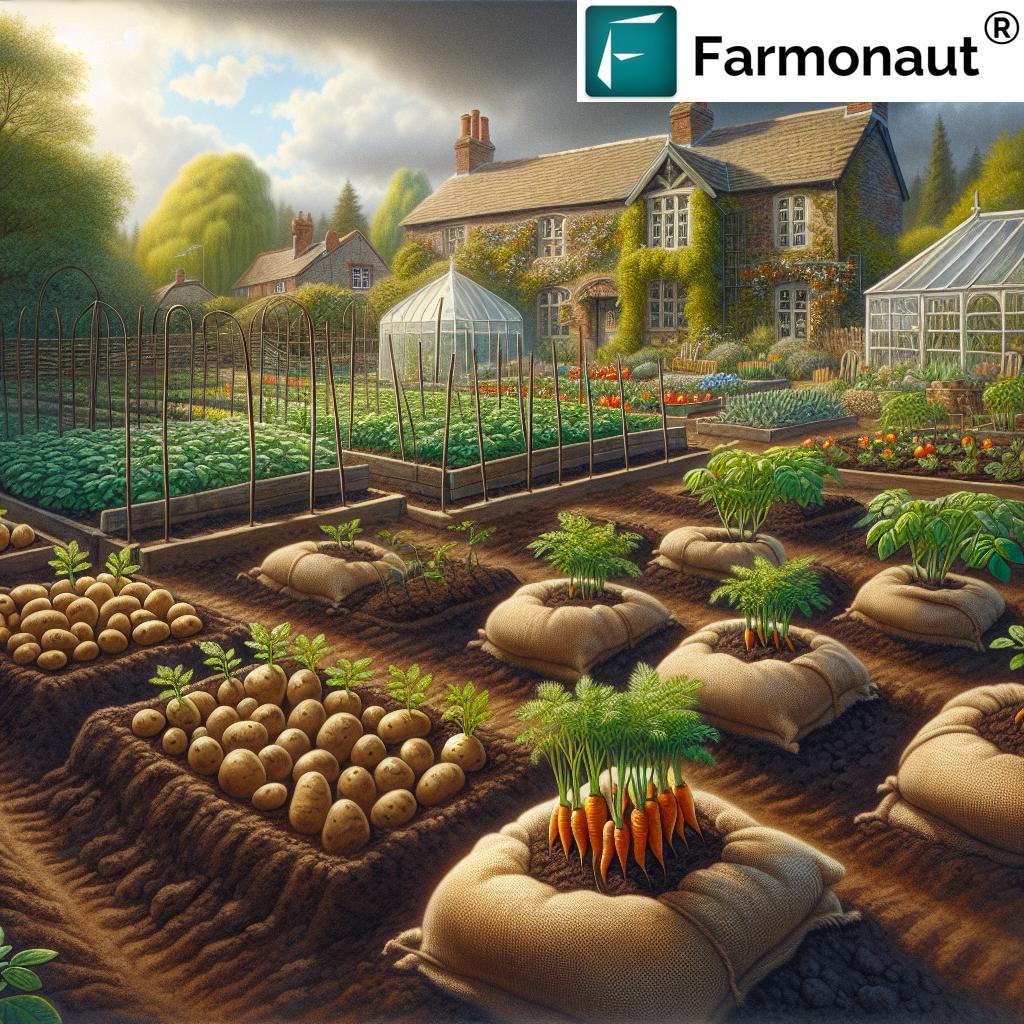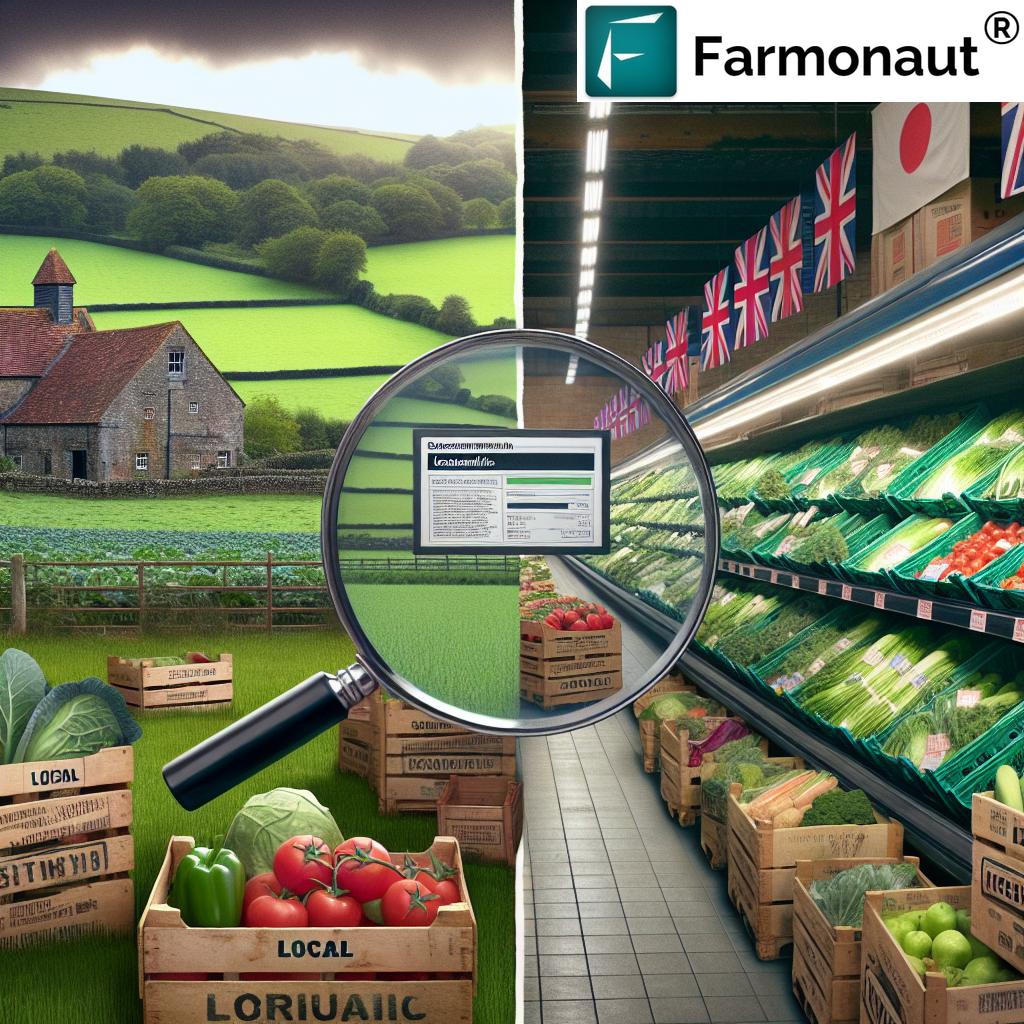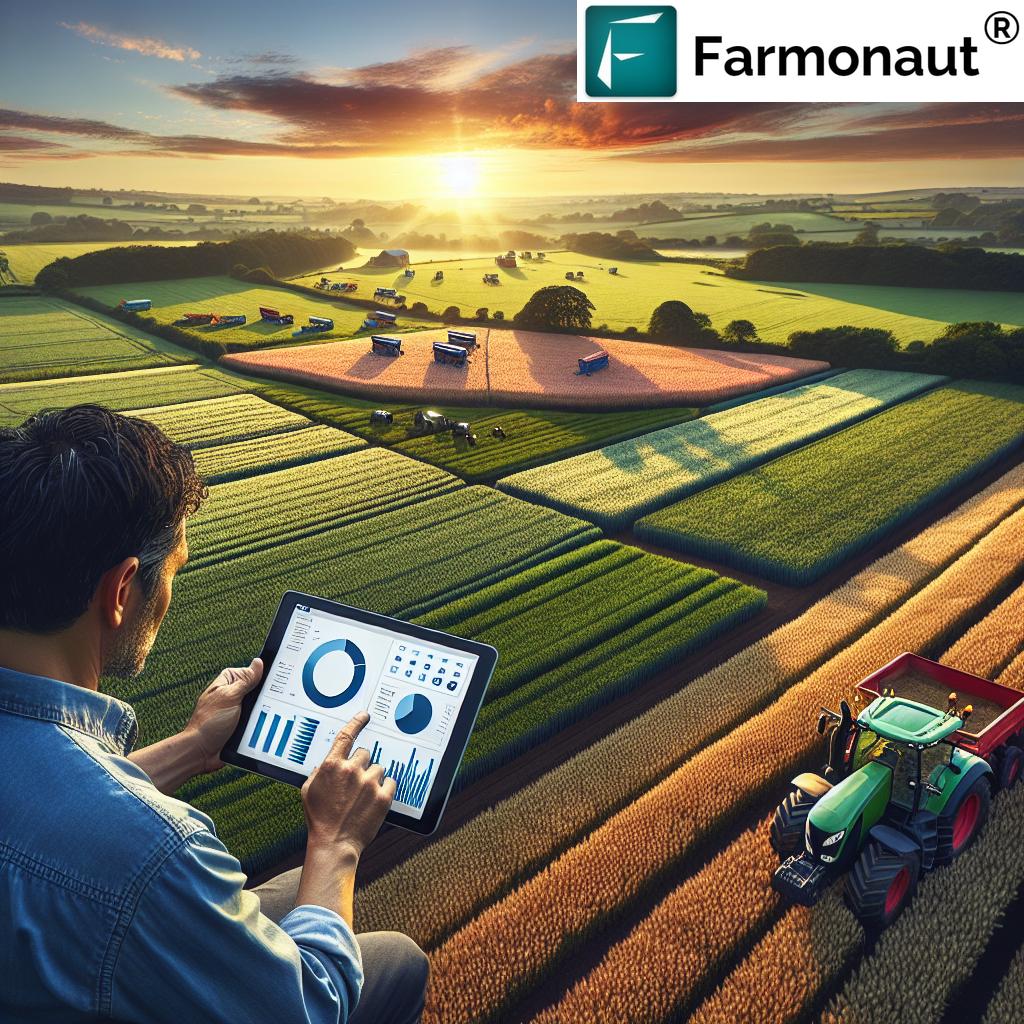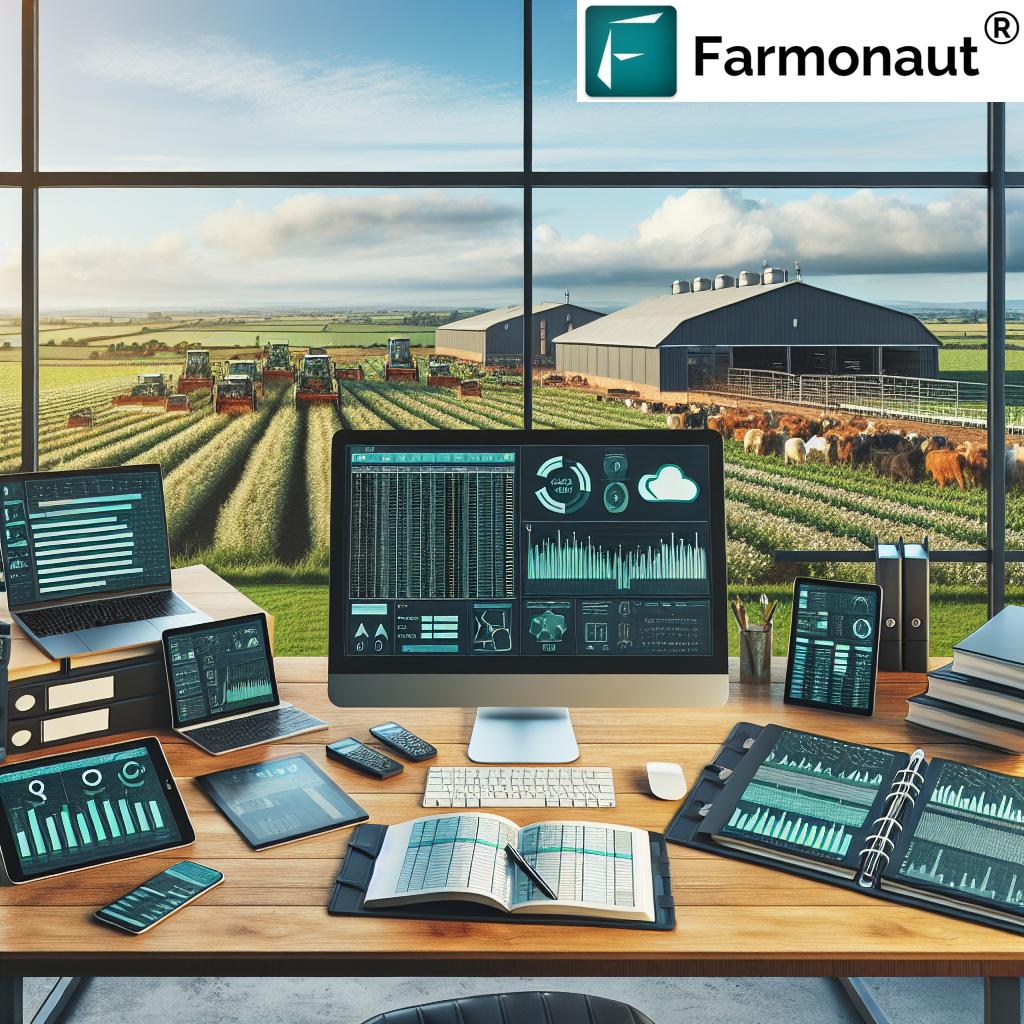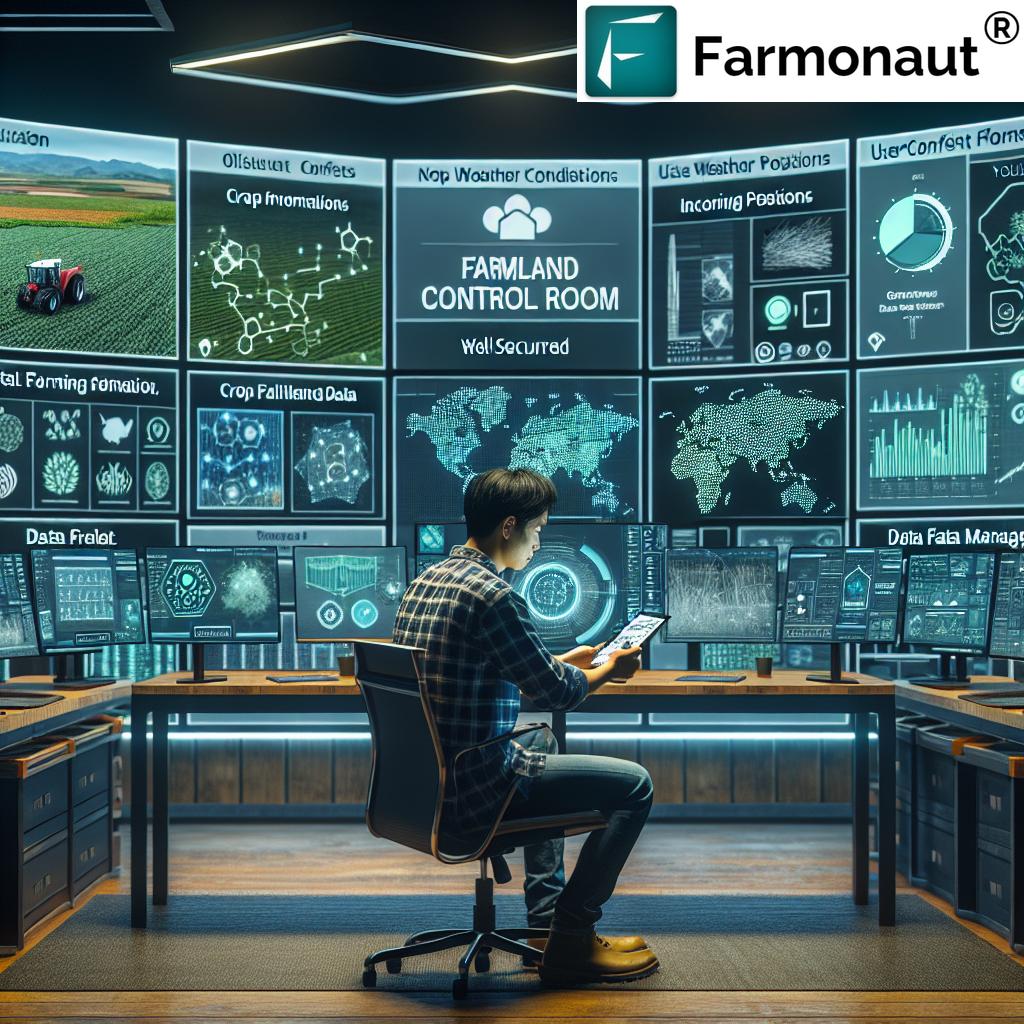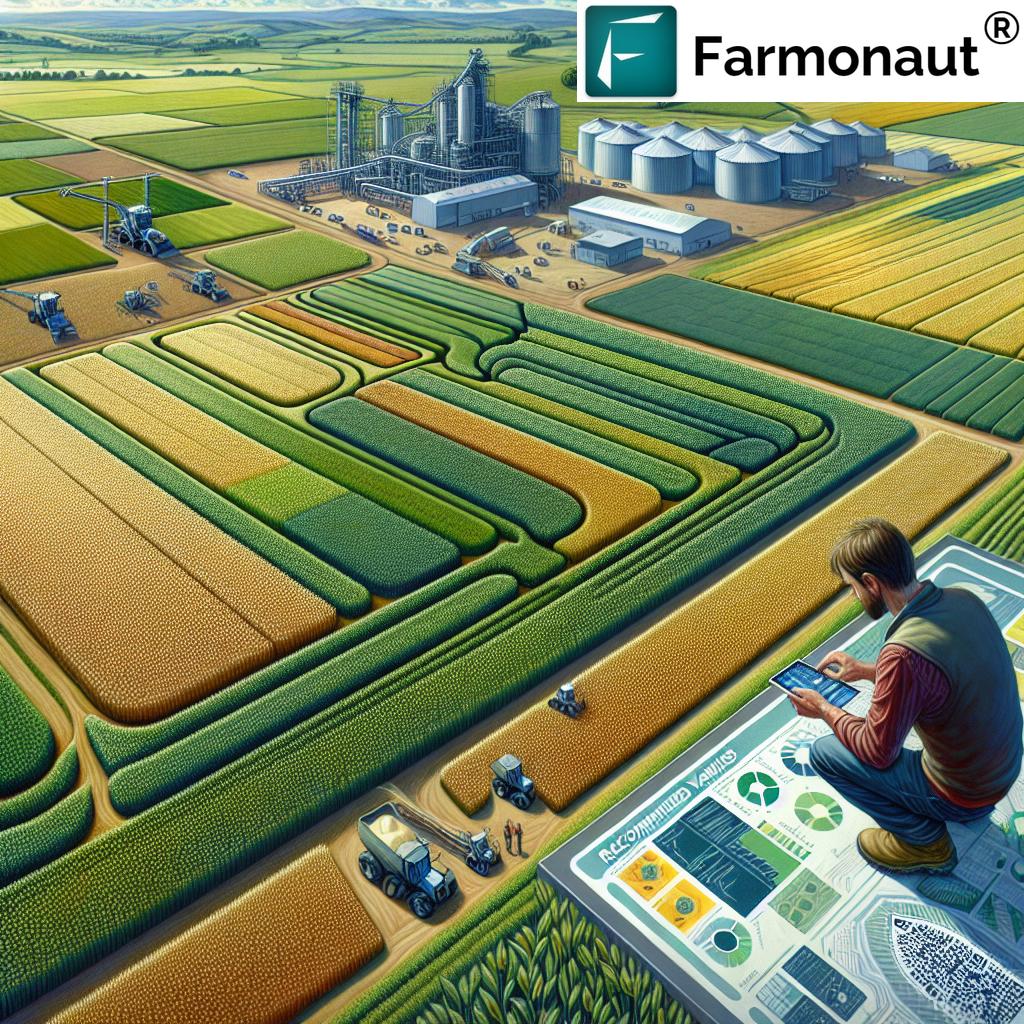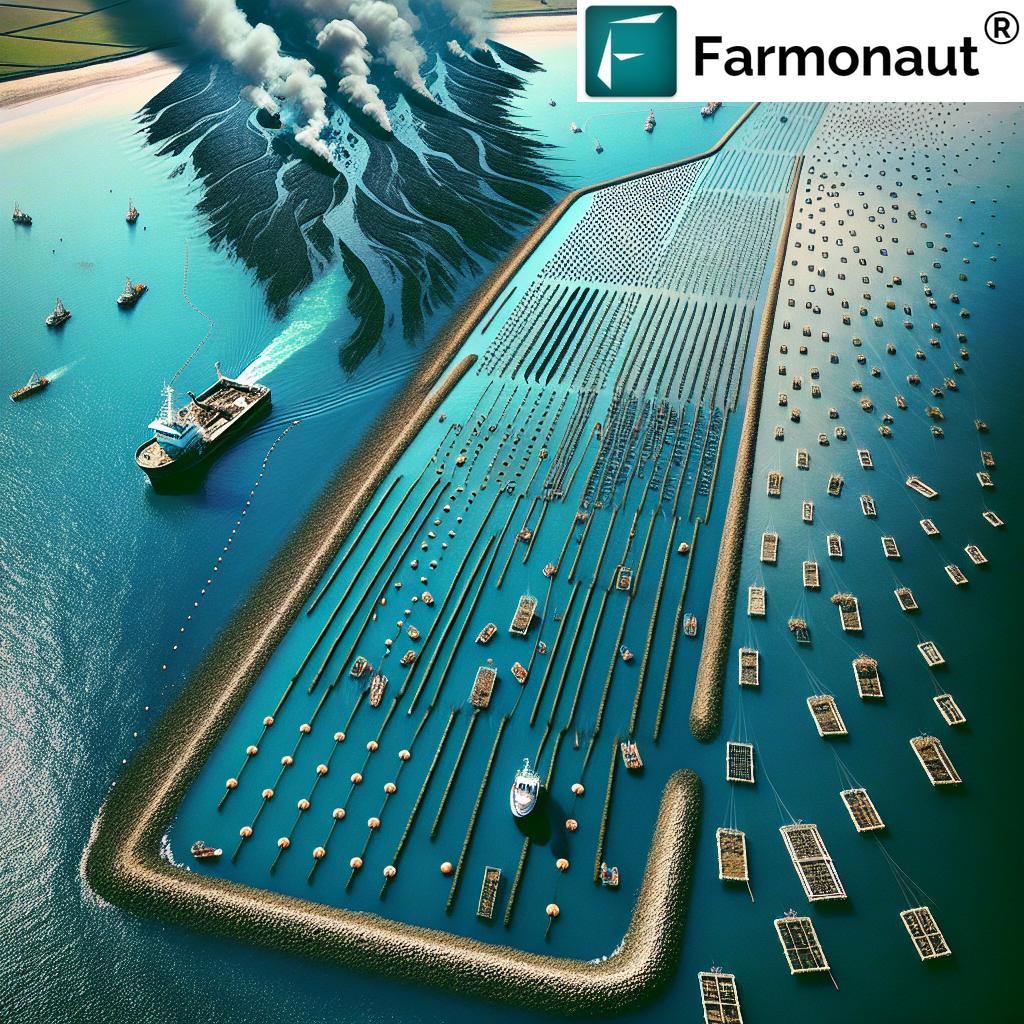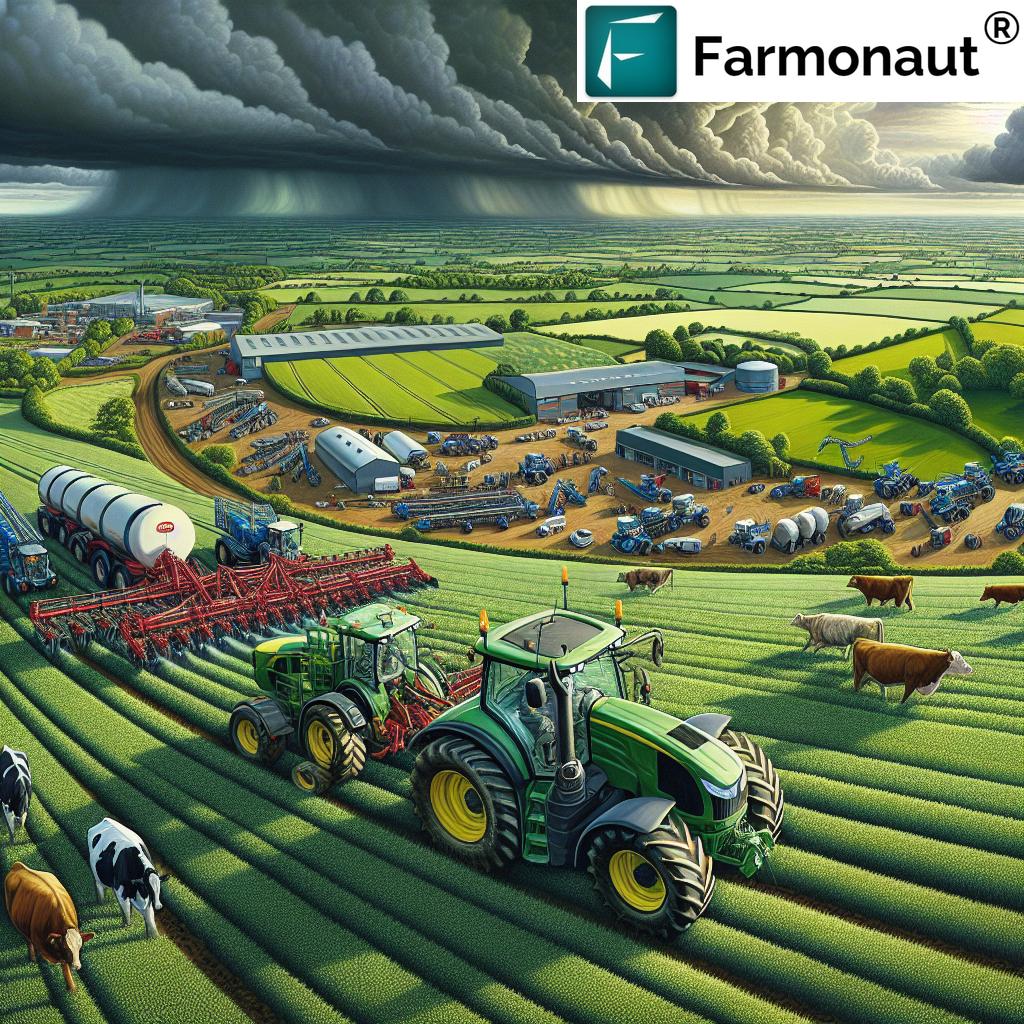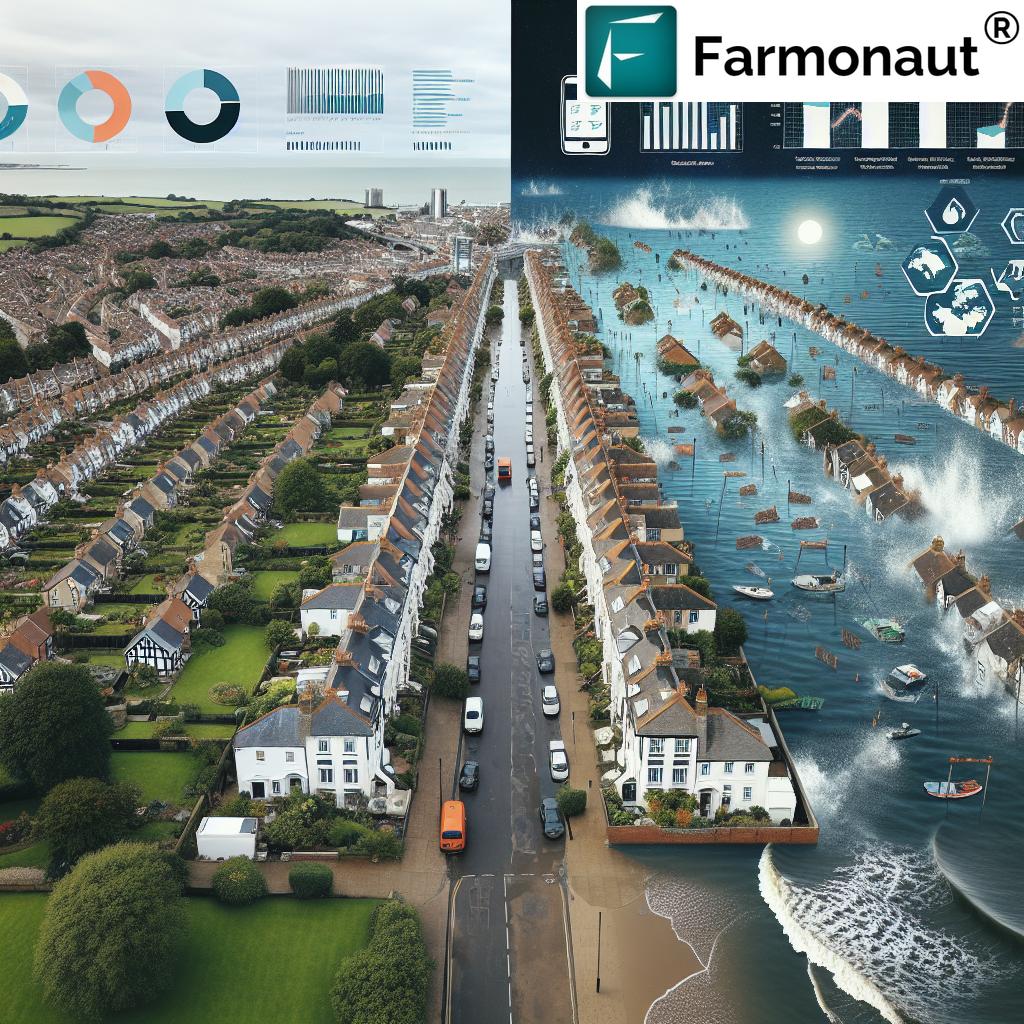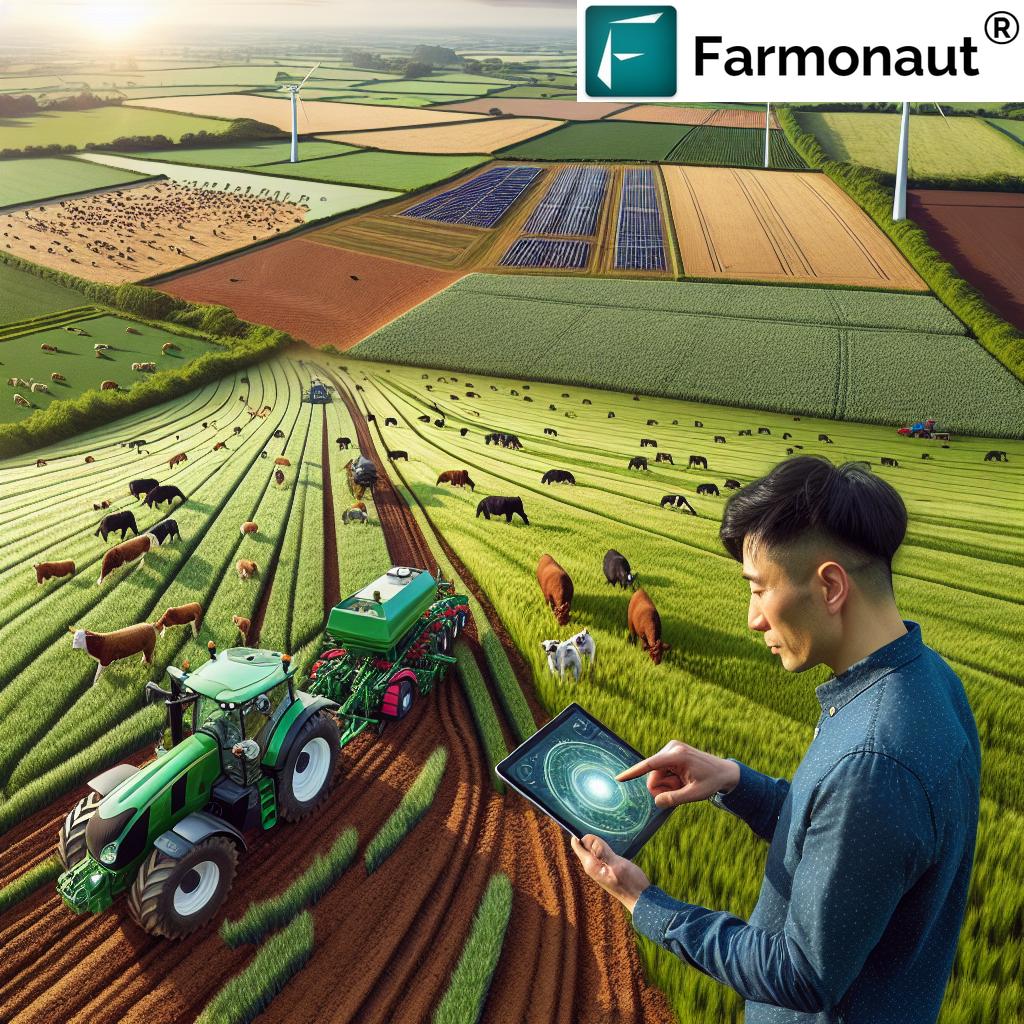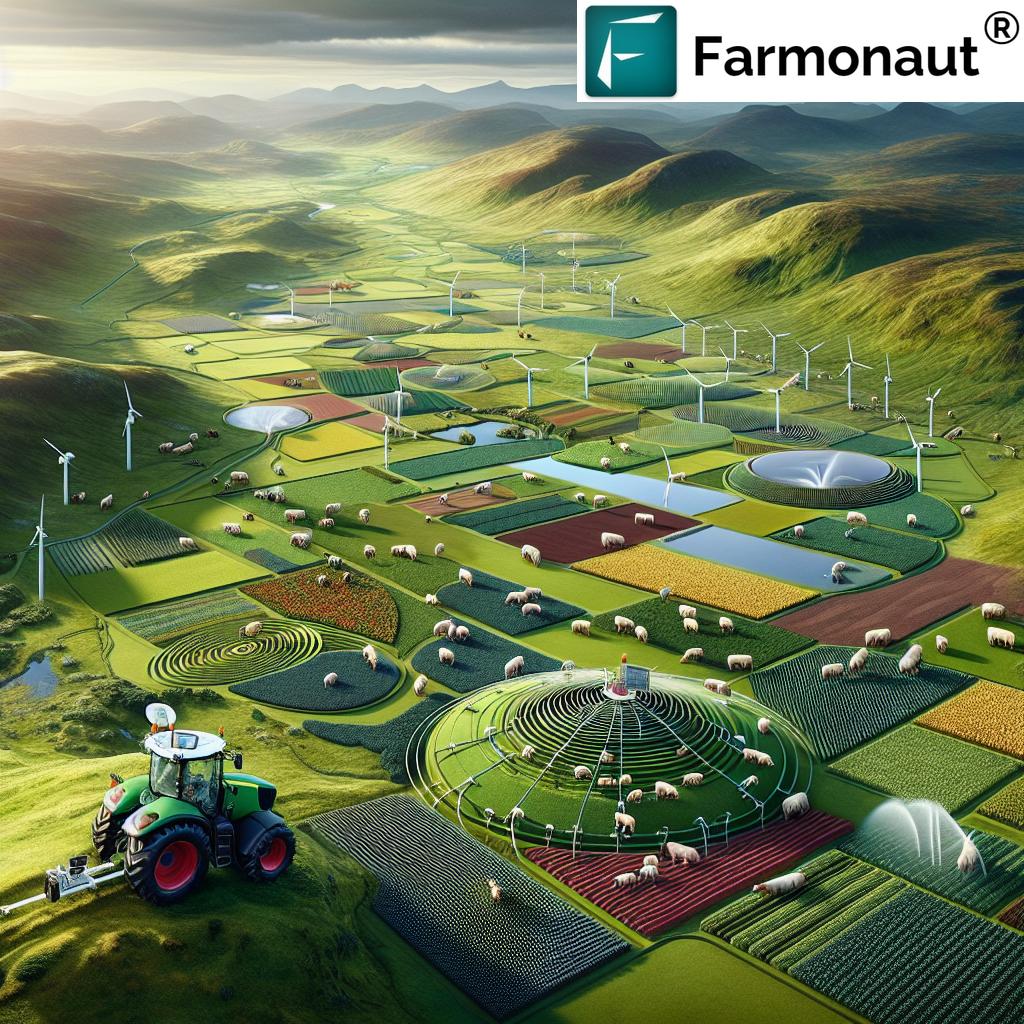UK Food Security at Risk: How Farmonaut’s Smart Farming Solutions Can Revolutionize Agricultural Productivity
“UK farmers face a triple threat: 60% higher fertilizer costs, 30% increased fuel prices, and 20% rise in animal feed expenses.”
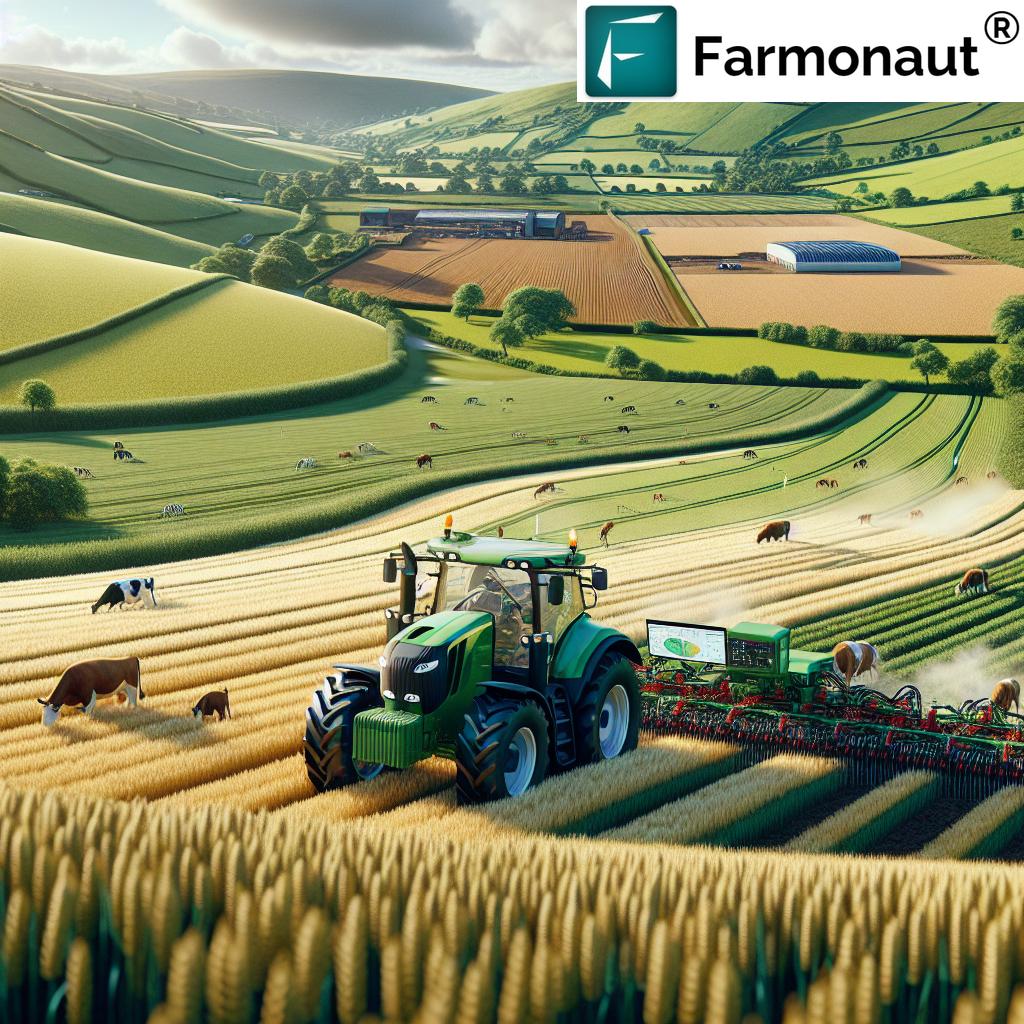
In recent years, the United Kingdom’s food security has faced unprecedented challenges, putting immense pressure on our agricultural sector. As we navigate through complex issues such as supply chain disruptions, climate change, and evolving consumer demands, the need for innovative solutions in farming has never been more critical. In this comprehensive analysis, we’ll explore the multifaceted challenges threatening UK food security and how cutting-edge agricultural productivity solutions, particularly those offered by Farmonaut, can revolutionize our approach to farming and secure our food future.
The Current State of UK Agriculture: A Sector Under Pressure
The UK agricultural sector is at a crossroads. Traditional farming methods are increasingly strained by a combination of economic, environmental, and societal factors. Let’s delve into the key challenges:
- Supply Chain Vulnerabilities: Recent global events have exposed the fragility of our food supply chains. The COVID-19 pandemic and geopolitical tensions have disrupted imports, highlighting our dependence on international trade for food security.
- Rising Production Costs: UK farmers are grappling with soaring input costs. The prices of essential farm inputs such as fertilizers, fuel, and animal feed have skyrocketed, squeezing profit margins and threatening the viability of many farming operations.
- Climate Change Impact: Extreme weather events, changing precipitation patterns, and temperature fluctuations are affecting crop yields and livestock health. This unpredictability poses significant risks to stable food production.
- Labor Shortages: The agricultural sector faces critical workforce challenges, exacerbated by changes in immigration policies and a declining interest in farming careers among younger generations.
- Soil Degradation: Intensive farming practices have led to soil erosion and loss of fertility in many areas, threatening long-term agricultural productivity.
These challenges collectively pose a significant threat to the UK’s food security, necessitating a radical rethink of our agricultural practices and technologies.
The Promise of Smart Farming Solutions
In the face of these challenges, smart farming solutions and precision agriculture techniques offer a beacon of hope. These innovative approaches leverage technology to optimize resource use, increase yields, and enhance sustainability in farming. Let’s explore how these solutions, particularly those provided by Farmonaut, are poised to transform UK agriculture.
Satellite-Based Crop Monitoring: A Game-Changer for UK Farmers
At the forefront of agricultural innovation is satellite-based crop monitoring, a technology that Farmonaut has perfected. This system uses multispectral satellite imagery to provide real-time insights into crop health, soil moisture levels, and other critical metrics. For UK farmers, this means:
- Precision Resource Management: By accurately identifying areas of crop stress or nutrient deficiency, farmers can apply fertilizers and pesticides precisely where needed, reducing waste and environmental impact.
- Early Problem Detection: Satellite imagery can reveal issues like pest infestations or disease outbreaks before they become visible to the naked eye, allowing for timely interventions.
- Optimized Irrigation: With detailed soil moisture data, farmers can implement more efficient irrigation strategies, crucial in areas of the UK prone to water scarcity.
This technology is particularly valuable for managing large arable farms and extensive grassland areas, common in the UK agricultural landscape.
“Precision agriculture techniques can reduce water usage by up to 30% and increase crop yields by 15% in the UK.”
AI-Driven Advisory Systems: Empowering Informed Decision-Making
Farmonaut’s Jeevn AI advisory system represents a significant leap in agricultural decision-making support. This AI-powered tool analyzes satellite data alongside other inputs to provide personalized recommendations for farm management. For UK farmers, this means:
- Customized Crop Management: Tailored advice on planting dates, harvest timings, and crop rotations based on local conditions and market trends.
- Weather Risk Mitigation: Advanced weather forecasting integrated with farm-specific data helps farmers prepare for and mitigate the impacts of extreme weather events.
- Yield Optimization: By following AI-generated recommendations, farmers can significantly boost their crop yields while minimizing resource inputs.
This level of precision and personalization in farm management is crucial for navigating the UK’s diverse agricultural landscapes, from the rolling hills of Wales to the fertile plains of East Anglia.
Blockchain-Based Traceability: Enhancing Food Supply Chain Transparency
In an era where consumers are increasingly concerned about food provenance, Farmonaut’s blockchain-based traceability solution offers a revolutionary approach to supply chain management. This technology:
- Ensures Transparency: Every step of the food journey, from farm to table, is recorded and verifiable, building consumer trust.
- Facilitates Rapid Problem Resolution: In case of food safety issues, the origin and path of products can be quickly traced, enabling faster recalls and problem resolution.
- Supports Local Producers: By providing clear provenance information, this system can help promote and validate claims of local and sustainable production, a growing concern for UK consumers.
For UK farmers and food producers, this technology offers a competitive edge in a market increasingly driven by consumer demands for transparency and sustainability.
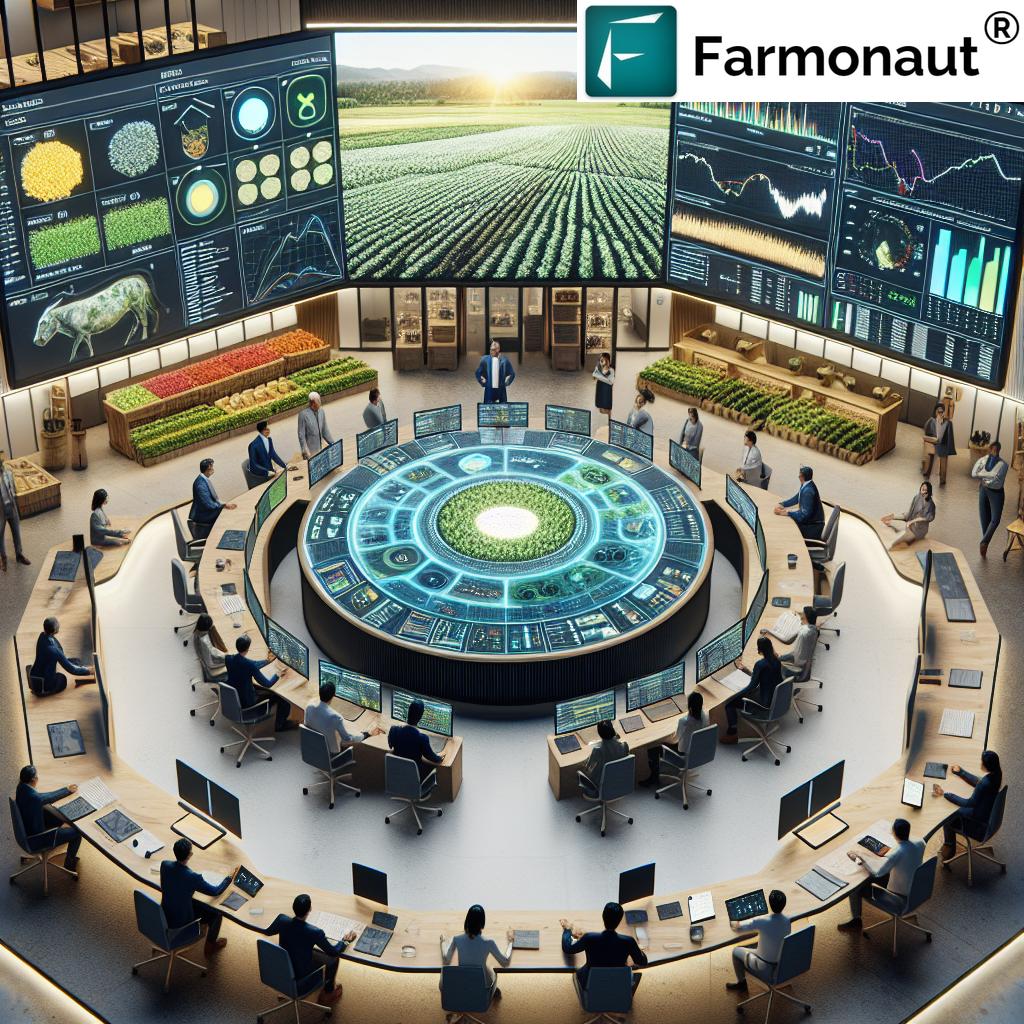
Implementing Smart Farming Solutions in UK Agriculture
The adoption of smart farming solutions like those offered by Farmonaut represents a significant shift in agricultural practices. Here’s how these technologies can be implemented across various sectors of UK agriculture:
Arable Farming: Precision and Efficiency
For arable farmers in the UK, precision agriculture techniques enabled by Farmonaut’s satellite monitoring can revolutionize crop management:
- Variable Rate Applications: Using detailed field maps, farmers can apply fertilizers and pesticides at variable rates across their fields, optimizing input use and reducing environmental impact.
- Crop Rotation Planning: AI-driven insights can help determine the most effective crop rotations, improving soil health and maximizing yields over time.
- Harvest Timing Optimization: Satellite data on crop maturity can help farmers determine the optimal time for harvest, ensuring maximum yield and quality.
These technologies are particularly valuable for managing large-scale cereal crops, oilseed rape, and other key UK arable products.
Livestock Farming: Enhanced Management and Welfare
While often associated with crop production, smart farming solutions also offer significant benefits for livestock farmers:
- Pasture Management: Satellite imagery can help optimize grazing patterns, ensuring efficient use of grassland resources and maintaining pasture health.
- Animal Health Monitoring: Integration with IoT devices can provide real-time data on animal health and behavior, enabling early intervention in case of issues.
- Feed Optimization: AI-driven systems can help calculate optimal feeding regimes, balancing nutrition with cost-effectiveness.
These technologies can significantly improve the efficiency and sustainability of dairy, beef cattle, and sheep farming operations across the UK.
Horticulture: Precision in Intensive Production
For UK horticulturalists, particularly those engaged in greenhouse and polytunnel production, Farmonaut’s solutions offer unparalleled precision:
- Microclimate Management: Integration of satellite data with local sensors can help create optimal growing conditions for high-value crops.
- Resource Optimization: Precision monitoring enables fine-tuned control of irrigation, heating, and lighting systems, reducing energy costs and improving crop quality.
- Market-Driven Production Planning: AI-driven market analysis can help growers align their production with anticipated demand, reducing waste and maximizing profitability.
These technologies are particularly valuable for the UK’s thriving soft fruit and protected crop sectors.
Overcoming Barriers to Adoption
While the benefits of smart farming solutions are clear, their adoption in the UK faces several challenges:
- Initial Investment Costs: Many farmers, particularly smaller operations, may find the upfront costs of technology adoption prohibitive.
- Digital Literacy: There’s a need for training and support to help farmers effectively use these new technologies.
- Data Privacy Concerns: Farmers may be hesitant about sharing detailed farm data, necessitating robust data protection measures.
- Rural Connectivity: Poor internet connectivity in some rural areas can hinder the implementation of real-time monitoring systems.
Addressing these challenges requires a concerted effort from technology providers like Farmonaut, government agencies, and agricultural organizations. Initiatives such as subsidies for technology adoption, rural broadband improvement, and comprehensive training programs can help accelerate the uptake of smart farming solutions.
The Role of Government and Policy
The UK government plays a crucial role in shaping the future of agriculture and food security. Recent agricultural policy reforms have emphasized sustainability and productivity, aligning well with the adoption of smart farming technologies. Key policy areas that can support this transition include:
- Incentives for Technology Adoption: Grants and tax incentives for farmers investing in precision agriculture technologies.
- Research and Development Support: Increased funding for agricultural research, particularly in areas like AI and satellite technology applications in farming.
- Data Infrastructure: Investment in rural digital infrastructure to support the implementation of smart farming solutions.
- Education and Training: Support for programs that enhance digital literacy among farmers and agricultural workers.
By creating a supportive policy environment, the government can accelerate the transition to more sustainable and productive farming practices, ensuring long-term food security for the UK.
The Future of UK Agriculture: A Vision of Smart, Sustainable Farming
As we look to the future, the integration of smart farming solutions like those offered by Farmonaut paints an optimistic picture for UK agriculture:
- Increased Productivity: Precision agriculture techniques could lead to significant yield increases across various crop types, helping meet growing food demand.
- Enhanced Sustainability: Optimized resource use will reduce the environmental footprint of farming, contributing to the UK’s climate goals.
- Improved Resilience: Data-driven decision-making will help farmers better navigate climate challenges and market fluctuations.
- Strengthened Supply Chains: Blockchain-based traceability will create more transparent and efficient food supply networks.
- Attracting New Talent: The high-tech nature of modern farming could help attract younger generations to agricultural careers, addressing labor shortages.
This vision of a technologically advanced, sustainable agricultural sector is not just aspirational; it’s becoming increasingly necessary for ensuring the UK’s long-term food security.
Conclusion: Embracing Innovation for a Secure Food Future
The challenges facing UK agriculture are formidable, but so too are the opportunities presented by smart farming solutions. Technologies like those offered by Farmonaut – from satellite-based crop monitoring to AI-driven advisory systems – have the potential to transform how we produce food, making our agricultural sector more productive, sustainable, and resilient.
As we navigate the complexities of ensuring food security in an uncertain world, embracing these innovations will be crucial. By combining the traditional knowledge and skills of UK farmers with cutting-edge technology, we can create a robust, efficient, and sustainable agricultural sector capable of meeting the challenges of the 21st century and beyond.
The journey towards a smarter, more secure food future for the UK is underway. With continued investment, supportive policies, and a willingness to embrace change, we can ensure that UK agriculture not only survives but thrives in the face of global challenges.
UK Agricultural Challenges and Smart Farming Solutions
| Challenge | Impact on Food Security | Smart Farming Solution |
|---|---|---|
| Supply Chain Disruptions | 15-20% increase in food prices | Blockchain-based traceability for transparent supply chains |
| Rising Production Costs | 10% decrease in farm profitability | AI-driven resource optimization to reduce input costs |
| Climate Change Effects | 10-15% decrease in crop yields | Satellite-based crop monitoring for adaptive management |
| Labour Shortages | 5-8% reduction in harvest efficiency | Automation and precision agriculture for reduced labor dependency |
| Soil Degradation | 5-10% long-term yield reduction | Precision agriculture for optimized soil management |
FAQ: UK Food Security and Smart Farming Solutions
Q1: How does satellite-based crop monitoring improve farm productivity?
A1: Satellite-based crop monitoring provides real-time data on crop health, soil moisture, and growth patterns. This allows farmers to make precise decisions on irrigation, fertilization, and pest control, optimizing resource use and improving yields.
Q2: Can small farms benefit from Farmonaut’s technologies?
A2: Yes, Farmonaut’s solutions are scalable and designed to be accessible to farms of all sizes. The subscription-based model and mobile app interface make it feasible for small farmers to adopt these technologies and improve their productivity.
Q3: How does blockchain technology enhance food security?
A3: Blockchain creates an immutable record of a food product’s journey from farm to table. This improves traceability, reduces fraud, and allows for quick identification of sources in case of food safety issues, thereby enhancing overall food security.
Q4: What role does AI play in Farmonaut’s agricultural solutions?
A4: AI is central to Farmonaut’s Jeevn AI advisory system. It analyzes data from multiple sources to provide personalized recommendations on crop management, helping farmers make informed decisions that optimize yields and resource use.
Q5: How can smart farming solutions help address climate change challenges?
A5: Smart farming solutions enable more efficient use of resources like water and fertilizers, reducing the environmental footprint of agriculture. They also help farmers adapt to changing climate conditions by providing data-driven insights for crop selection and management.
For more information on how Farmonaut’s solutions can benefit your farming operations, visit our web app or explore our API for custom integrations. You can also download our mobile apps for Android and iOS to access our services on the go.
For developers interested in integrating our satellite and weather data into their systems, check out our comprehensive API Developer Docs.
Farmonaut Subscriptions


